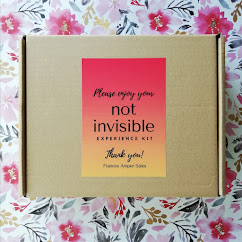And now I see this photo, a photo of his last days as a baby, and it makes me so emotional!!! As in naiyak ako, mamas. Kainez. I was surprised at my reaction. I have been so ready for the kid stage and so proud Piero went through potty training like a champ, but now that it's here, I guess I'm also wistful for the baby days.
But not wistful enough to want another baby! Nope. I am done! I am finished! I never have to do potty training again! Here's a short post on our tips on how we toilet-trained our three boys (because, yes, I can finally claim to be an expert!):
1. Watch for child's readiness.
I know babies can be potty-trained, and by babies, I mean 2 months old to less than a year old. But doctors say that is not a good idea at all. You can protest all you want but I'm going with the medical experts. Pediatric urologist Steve J. Hodges, MD, advocates for late potty training. His recommended age is 3 years old. Because any earlier than that is harmful. He writes in parenting website, Babble, "It’s typically the kids who trained earliest and most easily who develop the most serious problems. I see about 100 kids a week at my clinic, and about half are dysfunctional voiders; most of them trained before 3." Read his eye-opening article here: The Dangers of Potty Training Too Early.
How do you know a child is ready? When she can say she's ready, when she can run to the toilet and sit on it herself, and when she can pull down and pull up her underwear herself. So what does that mean? A child is ready for potty training when she can talk, walk, and have enough motor skills to not fall into the toilet bowl and manage the business of underwear on her own. Depending on your child, that could be anywhere from 2 to 3 years old.
Our kids were toilet-trained at these ages: Vito at 4 years and 2 months old, Iñigo at exactly 3 years old, and Piero at exactly 4 years old. We waited for their readiness, and because they were raring to do it, too, we were done in about 3 days, with hardly any mess and dismay.
2. Be ready yourself!
A few years ago, I was talking to a taxi driver while we were stuck in traffic. He was complaining about his kid, who had a kid herself. "Limang taong gulang na anak niya, hindi pa rin nagbabanyo mag-isa. Paano, tinatamad yung anak kong turuan yung anak niya!" So there, mga mommies. Kapag handa na si baby, kailangang handa na rin kayo!
Yes, while there are parents who are very eager to get their kids out of diapers, there are also parents on the other end of the spectrum. Many times parents are loathe to potty-train because it will be messy. They just don't want to deal with the mess and the frustration. As a former preschool teacher, I can attest to the many times a parent has asked, "Do you toilet train the kids as part of the curriculum?" O.M.G. talaga. Toilet training is a parent's job, guys.
I have a list of what to prepare when you're in the toilet-training stage to help you deal better with the mess and accidents. Click here!
3. Buy fun underwear.
In our experience, letting the kids see you in your underwear motivates them to want to wear their own. It helps them feel grown-up. If you have a boy, let him see daddy in his briefs or boxers. If you have a girl, let her see you wearing panties. Not all the time. Just when you're dressing up and when they ask about the clothes you're putting on.
Then the next time you go to the mall, ask them to check out the kiddie undergarments section. Let them have a choice. I personally prefer plain white briefs for my kids but they picked out colorful briefs emblazoned with superheroes so that's what we got them. Whatever makes them enthusiastic about graduating to underwear is welcome!
4. Try training pants.
Now that you've made your child excited to wear big-boy briefs or big-girl panties, you can help train them with the pull-down/pull-up movement with training pants. Training pants are diapers that have an elastic waistband. This makes it easier for your child to pull down his diaper when he needs to go the toilet. It also helps him feel secure because if accidents do happen, the mess will be contained in the training pants and can be discarded. It's easier for both the child and the parent (or yaya).
In our case, we only used training pants with Piero, our last child. That's how I know it really helps ease the anxiety and frustration of everyone involved in this messy business. I mean, we were able to toilet train Vito and Iñigo without training pants but with Piero, everyone was more relaxed. We used BabyLove Premium Gold Pants. Piero calls them "dia-pants" and these training pants definitely made the whole potty-training episode a happy affair. Plus, he loved his dia-pants so much, he was almost sorry when he realized he didn't need them anymore! Try the BabyLove Premium Gold Pants, mamas. Topaz Mommy approved!
5. Reward successful attempts.
It's important to be wildly happy about every successful trip to the toilet, mamas. Like, make it a HUGE deal. "Oh my goodness, you peed in the toilet! I'm so happy! Are you happy? Did that make you feel like a big boy? I bet! I can't wait for you to do that again! Good job!" Yes, that wildly happy.
Another thing they respond positively to is rewards. Whether it's a sticker on a chart or a small toy, you two decide. With Vito, he had to be motivated by Lego minifigs. With Iñigo, he was just happy with the praise. I mean, we had toys ready for him, too, but he was happier with the hugs and kisses. With Piero, he asked for a big toy—a Pacific Rim Jaeger action figure that we had to order all the way from China. So he was determined to learn to use the toilet quickly.
And of course, never punish a child for accidents. Don't even express disappointment. Always be encouraging. I know some parents get angry and say things like, "You're such a baby! You're so dirty!" And they spank the child for every time he or she doesn't get to the toilet on time. The child then learns to control his or her peeing and pooping out of fear. I've read research indicating that punishing a child during toilet training may result to two things: when the child grows up, he or she becomes sexually frigid or sexually deviant. The now-adult associate their sexual organs with filth, anger, and disappointing the important people in their life. So they either cannot feel sexual pleasure or they will only want sex that not normal. So please please please make potty training a positive experience!!!
Aaaaand there you go, mamas! My top toilet-training tips for that exciting, frustrating and messy time in you and your toddler's life!
*This post is brought to you by BabyLove.
































